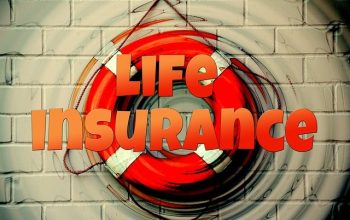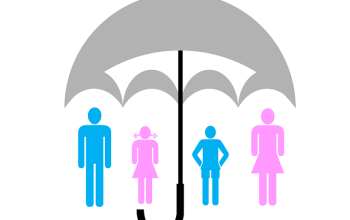General Liability Insurance is a critical safeguard for businesses of all sizes, encompassing Public Liability Insurance for third-party claims of injury or property damage, Professional Liability Insurance to protect against allegations of professional negligence, and Product Liability Insurance for issues stemming from product defects or malfunctions. For small businesses, integrating these elements into a Small Business Insurance framework is essential for risk management and ensuring long-term viability in a litigious environment. Adequate Business Liability Coverage is key to maintaining business continuity and protecting the company's reputation by providing financial protection against legal challenges. Entrepreneurs should consider these insurance types as part of a comprehensive strategy to navigate the complexities of modern marketplaces, ensuring they can focus on their core activities without undue risk of financial ruin due to liability claims.
businesses today operate in a complex legal landscape where unexpected incidents can arise. Understanding and securing the right insurance coverage is paramount for safeguarding against financial loss due to third-party claims. This article delves into the critical role of Public Liability Insurance within the context of General Liability Insurance, highlighting its significance for businesses that engage with the public. We will explore the nuances between Public and Product Liability Insurance, the importance of Professional Liability Insurance in protecting your business’s expertise, and the essential aspects of Business Liability Coverage for premises and operations. Furthermore, we will discuss how Commercial Liability Insurance contributes to a comprehensive small business insurance portfolio, ensuring business continuity and reputation in our litigious society. Navigating these insurance types is not merely a protective measure but an integral component of responsible business management.
- Understanding General Liability Insurance: A Comprehensive Shield for Businesses
- The Difference Between Public and Product Liability Insurance for Small Enterprises
- Navigating Professional Liability Insurance: Protecting Your Business's Expertise
- Essential Aspects of Business Liability Coverage for Premises and Operations
- The Role of Commercial Liability Insurance in Maintaining a Robust Small Business Insurance Portfolio
Understanding General Liability Insurance: A Comprehensive Shield for Businesses
General Liability Insurance serves as a cornerstone in safeguarding businesses against a multitude of exposures that can arise during the course of operations. This critical coverage encompasses various aspects of risk, including but not limited to Public Liability Insurance, which specifically addresses claims from members of the public for bodily injury or property damage due to business activities. It is imperative for small businesses to understand that incidents such as slips and falls on their premises, accidental damage to client property, or even advertising injuries can lead to costly legal battles and financial repercussions without adequate protection.
Businesses must also consider the necessity of Professional Liability Insurance, which protects against claims alleging negligence or harm due to professional advice or services provided. In contrast to Public Liability Insurance, this coverage addresses situations where a business’s advice, design, or service causes a financial loss to clients. Additionally, Product Liability Insurance, a subset of Commercial Liability Insurance, is crucial for businesses that manufacture, distribute, or sell products. This insurance safeguards against claims arising from product defects or malfunctions that could potentially harm users. Comprehensive liability coverage tailored for a business’s unique operations not only provides peace of mind but also ensures the longevity and reputation of the enterprise in an unpredictable marketplace. In today’s litigious society, where claims can be costly regardless of their merit, having a robust General Liability Insurance policy is indispensable for risk management and maintaining business continuity. Small Business Insurance packages often include these essential liability coverages, making them an integral part of a well-rounded insurance strategy for any entrepreneur.
The Difference Between Public and Product Liability Insurance for Small Enterprises
For small enterprises, distinguishing between General Liability Insurance, Professional Liability Insurance, Business Liability Coverage, Public Liability Insurance, Small Business Insurance, Product Liability Insurance, and Commercial Liability Insurance is crucial for comprehensive protection. At the core of these coverages lies Public Liability Insurance, which shields businesses from claims arising from third-party injuries or property damage resulting from business activities. This is particularly pertinent for entities that frequently engage with the public on their premises or offsite locations. It encompasses a broad spectrum of risks, including slip and fall incidents, customer injury, or accidental damage to third-party property.
In contrast, Product Liability Insurance specifically addresses the liability that arises from products designed, manufactured, or sold by the business. This form of coverage is essential when the product causes harm or does not perform as safely expected after purchase. It safeguards against claims related to product defects, inadequate warnings, or breach of warranty. Small businesses must consider both Public and Product Liability Insurance to ensure they are protected from the myriad of risks inherent in their operations. While Public Liability Insurance focuses on the interactions with the public and third parties, Product Liability Insurance is tailored to the products a business offers. Together, these forms of Business Liability Coverage offer robust protection against the diverse risks present in today’s market, particularly in a litigious society where claims can be costly and reputation-damaging. Ensuring that a small enterprise has both types of coverage under Commercial Liability Insurance is not just a prudent business decision but a critical component in maintaining business continuity and safeguarding the company’s reputation.
Navigating Professional Liability Insurance: Protecting Your Business's Expertise
In the realm of business operations, understanding the nuances between General Liability Insurance and Professional Liabilty Insurance is crucial for safeguarding a company’s expertise. General Liability Insurance, often interchangeable with Business Liability Coverage, primarily addresses third-party claims arising from bodily injury or property damage caused by the business’s operations. It ensures that small businesses are not financially crippled by the costly consequences of unforeseen incidents involving customers or clients on their premises or as a result of their work. This coverage typically includes Public Liability Insurance, which is indispensable for companies with a high degree of public interaction, such as retail stores and service providers.
On the other hand, Professional Liability Insurance, also known as Errors and Omissions (E&O) Insurance, is tailored to protect businesses that offer specialized expertise or professional advice. It covers claims related to alleged or actual negligence, errors, or omissions in a professional capacity, which can lead to significant legal fees and settlements. Product Liability Insurance, a subset under Commercial Liability Insurance, specifically addresses the risks associated with products a business sells or manufactures. Ensuring that both Professional Liability Insurance and Product Liability Insurance are part of your small business insurance portfolio is essential in today’s litigious environment, where a single claim could threaten a company’s financial stability and hard-earned reputation. In the event of a liability issue, these insurance policies offer comprehensive protection, allowing businesses to navigate legal challenges with confidence and maintain their focus on delivering exceptional services and products.
Essential Aspects of Business Liability Coverage for Premises and Operations
General Liability Insurance serves as a foundational element for comprehensive business protection, encompassing both premises and operations. It safeguards against third-party claims arising from bodily injury or property damage that occurs due to the business’s activities. For instance, if a customer slips and falls on a wet floor within a retail store, this policy can cover medical expenses, legal fees, and potential settlements. This coverage is crucial for all businesses but becomes even more pertinent for those with high foot traffic or those offering services that pose a higher risk of liability, such as construction companies or restaurants.
Furthermore, Professional Liability Insurance (often referred to as Errors and Omissions Insurance) complements General Liability Insurance by covering claims related to professional advice or service that did not have the intended outcome. It is particularly important for small businesses that provide expertise or consultancy, as a single mistake or oversight could lead to significant financial repercussions without this coverage. Additionally, Product Liability Insurance and Commercial Liability Insurance are specialized forms of liability coverage tailored to protect businesses from claims arising from the use of their products or services. These policies can provide defense and indemnity for issues like product defects, malfunctions, or inadequate warnings. Small Business Insurance packages often include a combination of these coverages, ensuring that small business owners are not personally liable for damages or legal costs resulting from business operations. It’s imperative for businesses to assess their specific risks and ensure they have the appropriate level of coverage to maintain their operational continuity and safeguard their hard-earned reputation in today’s litigious climate.
The Role of Commercial Liability Insurance in Maintaining a Robust Small Business Insurance Portfolio
For small businesses, crafting a comprehensive insurance portfolio is crucial for safeguarding against unforeseen events and potential financial devastation. At the heart of this portfolio lies General Liability Insurance, which serves as a foundational shield against claims of third-party bodily injury, property damage, and personal and advertising injuries. This broad coverage not only protects the business’s physical location but also extends to scenarios where a product or service provided causes harm. In the realm of professional services, Professional Liability Insurance, also known as Errors and Omissions insurance, is pivotal. It safeguards businesses against claims of negligence or mistakes in services provided, which can be particularly pertinent for consultants, lawyers, and IT professionals.
Complementing these core coverages, Business Liability Coverage, specifically Public Liability Insurance, is essential for businesses that engage with the public on a regular basis. It covers the risks associated with customer interactions and public events, ensuring that incidents like slips and falls or accidental damage to third-party property do not lead to business interruption or irreparable harm to the company’s reputation. Additionally, Product Liability Insurance is indispensable for businesses that manufacture, distribute, or sell products. It defends against claims arising from product defects or malfunctions, ensuring that a single product liability issue does not jeopardize the entire enterprise. Together, these elements—General Liability, Professional Liability, Business Liability Coverage, and Product Liability Insurance—form an integral part of a robust small business insurance portfolio. They provide a safety net that allows small businesses to operate with confidence, knowing they are protected against the myriad of risks present in today’s litigious environment. This comprehensive approach to liability insurance is not just a reactive measure but a proactive strategy for maintaining business continuity and upholding the trust of customers and clients alike.
In conclusion, the various forms of liability insurance—General Liability Insurance, Professional Liability Insurance, and Business Liability Coverage, including Public and Product Liability Insurance—are critical components of a robust small business insurance portfolio. They provide essential protection against the myriad risks that businesses face today. By understanding the distinctions between these policies and integrating them into their operations, small enterprises can safeguard their assets, mitigate financial losses from claims or lawsuits, and maintain their reputation in a challenging and litigious business landscape. As such, investing in comprehensive liability insurance is not just a strategic decision but an imperative step for businesses aiming to thrive and remain resilient in the face of unexpected incidents. Commercial Liability Insurance stands as a testament to a business’s commitment to its clients and operations, ensuring peace of mind and enabling entrepreneurs to focus on their core activities with confidence.



